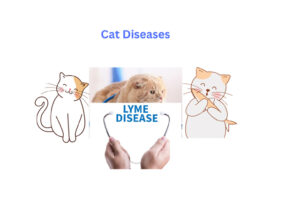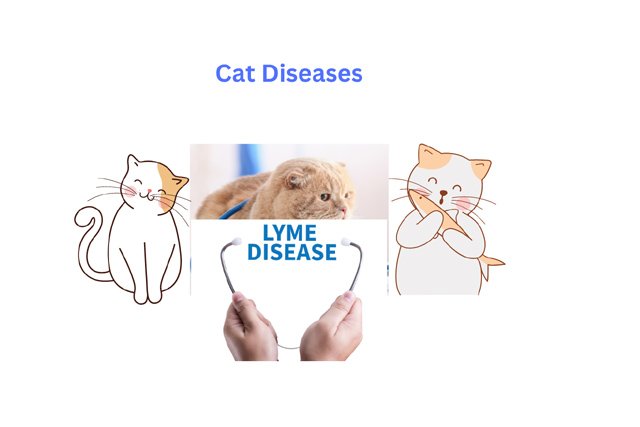If you’ve recently brought home a feline friend, congratulations! Loving your cat is one of the best feelings ever – and it’s so much better when they are healthy and happy. That being said, cats also come with their fair share of challenges. From constant cleaning to hiding spots in every corner, a single cat can make life a lot harder than it needs to be. That’s where a reliable vet comes in. A cat that is treated for its various medical problems as soon as they are spotted will have the best chance at long-term recovery. Keeping your kitty healthy is no easy task either – but with a little preparation, it doesn’t have to be impossible either. Here are some of the most common reasons why your kitty may be sick and how you can treat them accordingly:
Upper Respiratory Disease (URD)
Cats are very particular when it comes to their breathing. They have a nose that can filter large quantities of air very quickly, which is why they are excellent at hunting small prey. However, this hunting method means that cats don’t need as much oxygen as humans do. They are also more prone to upper respiratory diseases, like URD. As the name suggests, this is a disease that affects the cat’s respiratory system. Cats can get all sorts of illnesses and infections, including bacterial infections like panleukopenia, feline viral rhinotracheitis, and feline herpes virus. While the exact cause of URD is not completely understood, it is believed to be caused by a combination of factors, including genetic mutations, air pollution, and even stress. Cats that live in cities or who spend a lot of their time indoors are more likely to develop URD. That being said, it’s possible to prevent this disease. Just keep your cat’s environment clean and well-ventilated, and be sure to provide plenty of fresh water and food.
Heart Failure
Heart failure is a condition where the cats’ heart fails to pump enough blood around the body, resulting in a buildup of fluid in the lungs and blood vessels. Two of the most common heart diseases in cats are mitral valve dysplasia and cardiomyopathy. The former is a genetic mutation that causes the valves in the heart to be malformed – an abnormality that is usually harmless, but may cause the cat to develop heart disease as it gets older. The latter is caused by a number of factors, including a weak or underactive heart, high blood pressure, kidney disease, or even obesity. If you notice any of these symptoms in your cat, it’s best to bring them in for a check-up. Unfortunately, heart disease can be fatal, so it’s important to get it treated right away. The first step is diagnosing the cause and then taking the cat to the vet for a treatment plan. If your cat is suffering from heart disease, it’s important to try and keep them as comfortable as possible.
Feline Infectious Peritonitis (FIP)
Cats are not usually susceptible to infections like humans are, but there are a few exceptions. FIP is one of these. When a cat catches FIP, their body becomes so inflamed and sick that it starts to affect their intestines. This leads to swift, painful death. Thankfully, catching FIP is very rare. FIP is caused by a type of bacteria called felis catus catx. While it can be contracted from infected cats, it can also be passed on by contaminated food or water. This means that both pet and human owners can catch it. If you notice your cat has been acting strangely, has a persistent diarrhea, or if they suddenly stop eating, it’s best to bring them in for a check-up as soon as possible.
Urinary Tract Infection (UTI)
Cats are extremely clean animals – that’s just their nature. This means that they are susceptible to urinary tract infections (UTIs). Luckily, UTIs in cats are rather rare and easily treated. You should always make sure that your cat has clean water and food at all times, and that they don’t have access to other animals that have UTIs. If you notice any of these symptoms, it’s best to bring your cat in for a check-up. In most cases, a UTI can be treated with a course of antibiotics.
Abscesses in the Skin and Muscles
Although uncommon, abscesses in the skin and muscles are quite serious. When an infection penetrates the skin, a cut, scrape, or even a minor wound, the immune system will try to fight it off. In some cases, the immune system is unable to fight off the infection, and an abscess will form. Depending on the severity of the abscess, you may be able to treat it yourself. If you can catch the infection early enough, you can try to clean the cut with warm water and a non-antibiotic hand soap. You can also try to drain the abscess by making a small incision at the base of the infection and allowing the pus to drain out.
Diarrhea
Diarrhea is easily treated and is usually caused by a virus. There are a few different types of viruses that can cause diarrhea, and they all respond well to different treatments. In most cases, you can treat diarrhea with a combination of probiotics and antibiotics. To prepare for this treatment, make sure that your cat is getting plenty of water and food. Also, be on the lookout for the following symptoms: – Loss of appetite – Shaking or trembling – Blood in the stool – Wet, noisy, or gurgling noises when they defecate – Severe, persistent diarrhea – Urine changes – Other
Other Cat Health Concerns
In addition to the major health concerns listed above, it’s important to keep an eye out for the following issues in your cat: – Feline Growth Hormone Deficiency (FGHD): This condition is caused by the body producing too much of the hormone, and it is usually found in overweight cats. Treatment usually involves giving your cat a high-calorie diet and, if necessary, an operation to stop them from overeating. – Feline Immunodeficiency Virus (FIV): This is a highly contagious disease that attacks the cat’s immune system. Once infected, a cat is likely to die from the disease within 2 to 4 years. This is a condition that needs immediate treatment. – Feline Leukemia: This is a very rare disease that affects the blood cells in the cat’s body. Signs include weakness, weight loss, and anemia. – Feline Zeugma: This is a type of staph infection that causes blockages in the urinary tract. It usually presents with a very serious infection.

Wrapping Up: What You Can Do to Help Your Kitten
There are a number of reasons why your kitty may be sick, and a few of them may be serious. To prevent your cat from getting sick in the first place, try to keep their environment clean and well-ventilated, provide plenty of fresh water, and make sure they are getting enough food. If you notice your cat acting strangely, or if they suddenly stop eating, it’s best to bring them in for a check-up. Make sure to bring along your vet’s visit form, as it makes things easier when it comes to scheduling your pet’s check-up. There are a number of things you can do to keep your cat healthy and happy.























